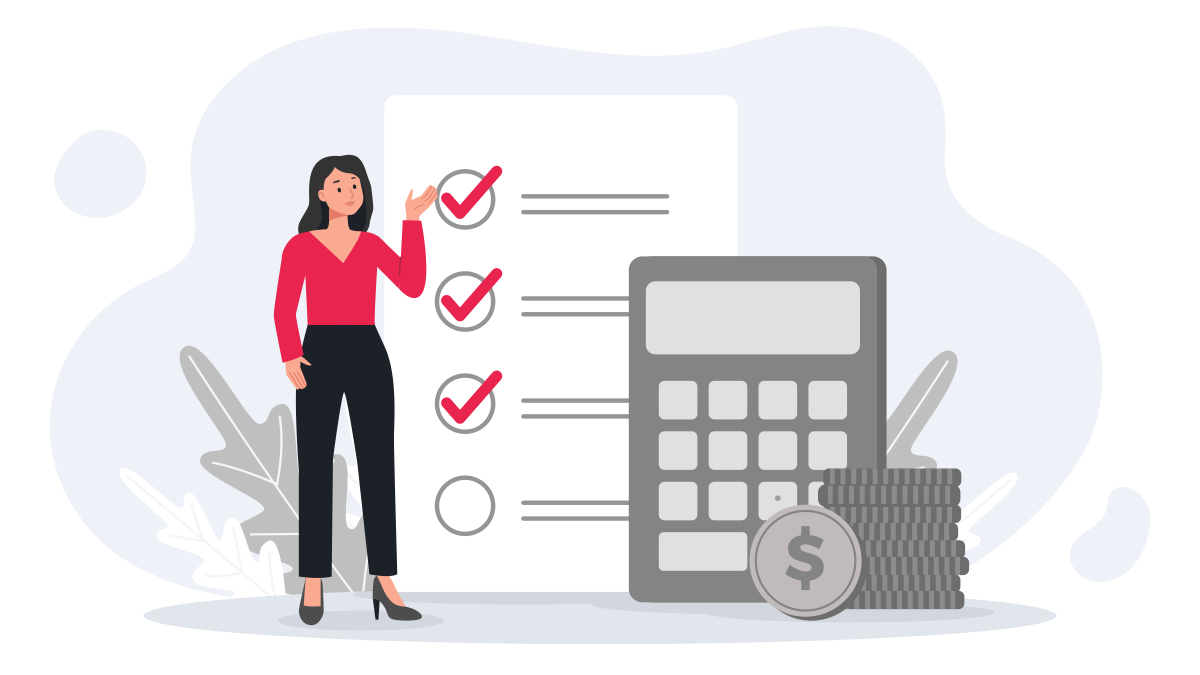Essential Tax Checklist for Small Business Owners

It's tax time, and Uncle Sam is coming 'round to make sure you've paid your fair share. All of your income and expenses have been painstakingly recorded and are ready for scrutiny. Here is a "short list" of essentials that the self-employed small business owner will need to have prepared before the deadline.
Forms 1099, Schedules K-1, and income records to verify amounts not reported on 1099s
This can get complicated. According to the IRS website, Form 1099-K, Payment Card and Third Party Network Transactions, is an IRS information return used to report certain payment transactions to improve voluntary tax compliance. (In other words, this is your form for your chance to pay now on your income, before the IRS handles the collection.)
You should receive Form 1099-K by January 31st if, in the prior calendar year if you received payments from payment card transactions (e.g., debit, credit or stored-value cards), and/or in settlement of third-party payment network transactions above the minimum reporting thresholds of gross payments that exceed $20,000, AND more than 200 such transactions.
- Check your payment card receipt records and merchant statements to confirm that the amount on your Form 1099-K is accurate
- Review your records to ensure your gross receipts are accurate and reported correctly on your income tax return
- Determine whether you have reported income from all forms of payment received, including cash, checks, and debit, credit and stored-value card transactions.
- Maintain documentation to support both the income and deductions you report on your income tax return
Visit the the IRS website for more details on the 1099 and income portion.
Records of all expenses — check registers or credit card statements, and receipts
The IRS defines expenses as "the costs you incur to carry on your business." Your supporting documents should show the amount paid and a description that shows the amount was for a business expense.
The first item listed as a required supporting document is a registry of canceled checks or other documents that identify payee, amount, and proof of payment/electronic funds transferred. Luckily, there are sites like Checkeeper, an online check-writing service for printing and sending your own checks, that store all of your checks in a secure, cloud-based registry which makes them easy to reference and run reports.
In addition to a complete check registry, it is good to have a record of all receipts, account statements, credit card receipts and statements, invoices, and petty cash slips for small cash payments.
Business-use asset information for depreciation
There are myriad of rules and conditions surrounding how to claim depreciation. But, the main highlights of the deduction are that you must complete and attach Form 4562 to your tax return if you are claiming any of the following:
-A Section 179 deduction for the current year or a Section 179 carryover deduction from a prior year
-Depreciation for property placed in service during the current year
-Depreciation on any vehicle or other listed property, regardless of when it was placed in service
For additional information on all the different ways to claim depreciation, visit IRS.gov depreciation FAQs.
Home office deduction
If you use part of your home for business, you may be able to deduct expenses for the business use of your home. The home office deduction is available for homeowners and renters, and applies to all types of homes.
The "Simplified Option"
For taxable years starting on, or after, January 1, 2013 (filed beginning in 2014), you now have a simplified option for computing the home office deduction (IRS Revenue Procedure 2013-13, January 15, 2013). The standard method has some calculation, allocation, and substantiation requirements that are complex and burdensome for small business owners.
This new simplified option can significantly reduce the burden of record-keeping by allowing a qualified taxpayer to multiply a prescribed rate by the allowable square footage of the office in lieu of determining actual expenses.
Check out more on taxes related to a home office, including the simplified option, visit - IRS.gov home office deduction.
Record of estimated tax payments made (Form 1040–ES)
Estimated tax is the method used to pay tax on income that is not subject to withholding (for example, earnings from self-employment, interest, dividends, rents,alimony, etc.). In addition, if you do not elect voluntary withholding, you should make estimated tax payments on other taxable income, such as unemployment compensation and the taxable part of your social security benefits.
The full rundown on estimated taxes can be found here - IRS.gov about form 1040-ES.
Don't Panic
After you've gathered all the above, it's time to move forward, either bravely solo, or with professional assistance. However, the best advice out there is, even if you don't have the means to retain an accountant year round, now is a good time to look into using services at an accounting firm for the annual submittal. Tax laws change like Texas weather, so, it is wise to enlist the help of a professional to avoid any penalties, and to not miss out on any unknown benefits that may exist.
For a full checklist of all possible items you may need for taxes regarding business and hobby income, medical expenses, investments, etc., you can find a good form on the H&R Block website, and don't forget to visit IRS.gov for more detailed information for any questions you that may arise that you will want to bring to the accountant.